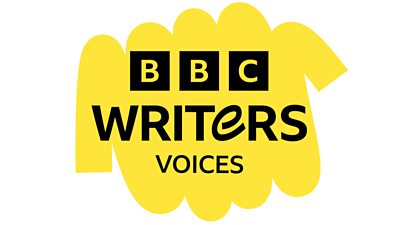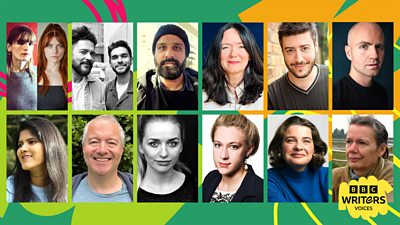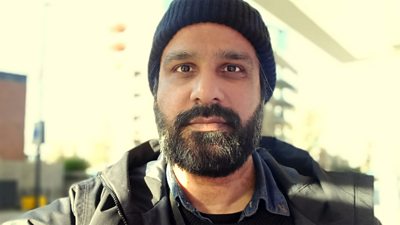Our Open Call script submission window has now closed for 2024 with a record number of submissions. Reading is already underway and we'll let everyone know the outcome as soon as we can, however this will take several months, so please be patient.
In the meantime we took the opportunity to speak to one of the writers who was successful in a previous Open Call about their subsequent experience as part of a ����ý Writers development group. is a writer and documentary film maker who submitted a script to our Open Call window which closed in December 2022. He was subsequently invited to join our Voices writer development group for 2024 and sums up his experience below.
Prior to taking part in ����ý Writers Voices 2024, I had been directing factual TV for twenty years. In that time, I must have written more than fifty scripts for TV programmes ranging from irreverent to journalistic. I’d say writing those scripts gave me a grasp of pace and structure I was able to transfer into screenplays.
My first foray into writing drama came as I began directing reconstructions on crime shows for the ����ý and . I loved the writing with a passion and realised I wanted to do it professionally.
When I began working in TV in the 1990s, I was inspired by my passion for social issues. I was always drawn to news articles about unethical corporations and governments exploiting people, so when I found a chilling story about companies using death squads to control employees in South America, I had the inspiration for my first feature script.
That script did well enough in competitions to encourage me to carry on and it was during covid that I began to focus full time on writing. A script I wrote during covid got optioned as a series and gained me representation with the incredible Amanda Davis at Curtis Brown.

����ý Writers Voices was the first broadcaster led writers’ development programme I got invited onto. Being a fan of ����ý dramas and having freelanced as a director at many ����ý buildings, it felt unusual to come back as a writer.
I was really chuffed to get the initial email from ����ý Writers saying my script had got me shortlisted for interview. Having the questions sent to me beforehand was really helpful and saved me the stress of trying to anticipate questions. These initial interactions formed a very positive impression of the ����ý Writers team. The interview itself was super friendly, the ����ý Writers team were interested in my script, and of course, I enjoyed telling them about it. I do worry because my work skewers privilege and I get self-conscious talking to white creatives about white privilege. Once I get going, it’s hard to stop, so I’ve learnt to look for signs that people are feeling awkward. Thankfully nothing I said seemed to cause any awkwardness, in fact the team were open to hearing what I thought.
After being accepted onto the scheme, information was communicated clearly and concisely and the team responded promptly to questions. A detailed schedule of the entire six-month programme was sent out with clear information about the weekly workshops as well as signposting deadlines.
Seeing the entire programme laid out was a huge help. I could plan out my time and block out the weeks I’d need for writing well in advance. The main writing assignment during Voices was to develop and create a series outline from scratch and write it up into a five page document that covered logline, pilot and series overview.
The brilliant weekly online workshops on structure, character, writing pilots and pitch documents, working with producers, editors and agents as well as thinking about the climate emergency and the business of writing equipped us with the knowledge, craft and insights we could use to complete the assignment. I found the session on audience data – who ����ý audiences are and what they watch – really eye opening.
The workshops were unvarnished and honest, as were the sessions with former Voices writers sharing their experiences of working professionally. It was inspiring to see writers who had taken the next step post Voices as well as hear about their experiences.

Taking part in the workshops online showed me the scale of the Voices project. There was a cohort of around twelve writers for each of the six regional hubs (Scotland, Belfast, Wales, North and Midlands, London, South) and meeting them every week online, along with their respective ����ý leads and teams made me feel part of a big writing community. It also helped me appreciate the vast capacity the ����ý currently has to organise projects of this scale.
The ����ý Writers team in my hub set up a WhatsApp Group and then left it for the writers only, with no ����ý staff access. This became a vital space for Voices writers to catch up, support each other and help with suggestions, information we might have missed, links for stuff and mulling over ideas.
When it came to our assignment, I started by brainstorming some raw series ideas with the ����ý Writers team in my hub, eventually settling on one that excited all three of us about a soldier from a heroin-ravaged English town who discovers his anti-drug unit is smuggling opium out of Afghanistan. The project appealed to my passion for conspiracy thrillers and was also a canvas to create amazing characters to explore corruption, betrayal, class and patriotism. The ����ý Writers team provided invaluable feedback, helping me refine the outline to the point it was compellingly urgently bursting to be turned into a script.

As part of the Voices scheme we were then given the chance to pitch to work with a Script Editor who was taking part in Script Editor training at the . I was lucky to be selected and I was then partnered with Sarah Culpin, a talented script editor. Sarah prioritised getting to know me and took the time to understand my voice and perspective. Her empathetic approach laid the foundation for later meticulous work as we delved deep into the series arc.
Sarah wanted me to clarify the inner journey of my protagonist, Max Brown, a soldier haunted by his father's heroin addiction. By encouraging me to distinguish between Max's desire (annihilating the Afghan opium trade to avenge his father’s overdose) and his true need (forgiving his father for becoming an addict), Sarah helped find the emotional core of Max’s character.
Armed with this newfound understanding, Sarah asked me to revise my scene-by-scene breakdown and write Max’s emotional state into every scene.
As I wrote, having Max’s emotional journey mapped out sent scenes in entirely new directions. Writing Max’s mother as a vibrant optimist came directly from knowing Max’s dour emotional state. Because he is so stern and volatile, it was clear he needed a foil, so having his mum frustrating his self-pity really worked.
Whenever I got stuck in the mud, I could refer to the emotional map and know which way to go. It made the process of writing the actual script less fraught with roadblocks and dead ends.
I think my experience as a TV director really helped as I got notes from Sarah. Having made fifty or so films over twenty years, I’ve received all manner of feedback, and had an array of methods I could deploy to deflect or ignore notes I didn’t agree with.
The amazing thing is, everything Sarah raised made sense and made the script better. We worked together really closely right up to the deadline to submit the completed script into the latest ����ý Writers Open Call.
And then… there was that flat feeling that comes when the work is done and sent off – a twilight zone of thoughts and emotions still spinning but with nowhere to go because the script has been sent out.
Whatever happens next, I know I am a better writer than I was before I took part in Voices. ����ý Writers Voices has equipped me with tools I will always have at my disposal as I continue my writing journey. The knowledge and support has been invaluable and I’m really happy with how I’ve developed and with the script I have written.
Related Links
-
����ý Writers Open Call Find out full details
-
����ý Writers Voices Meet the writers who have taken part

